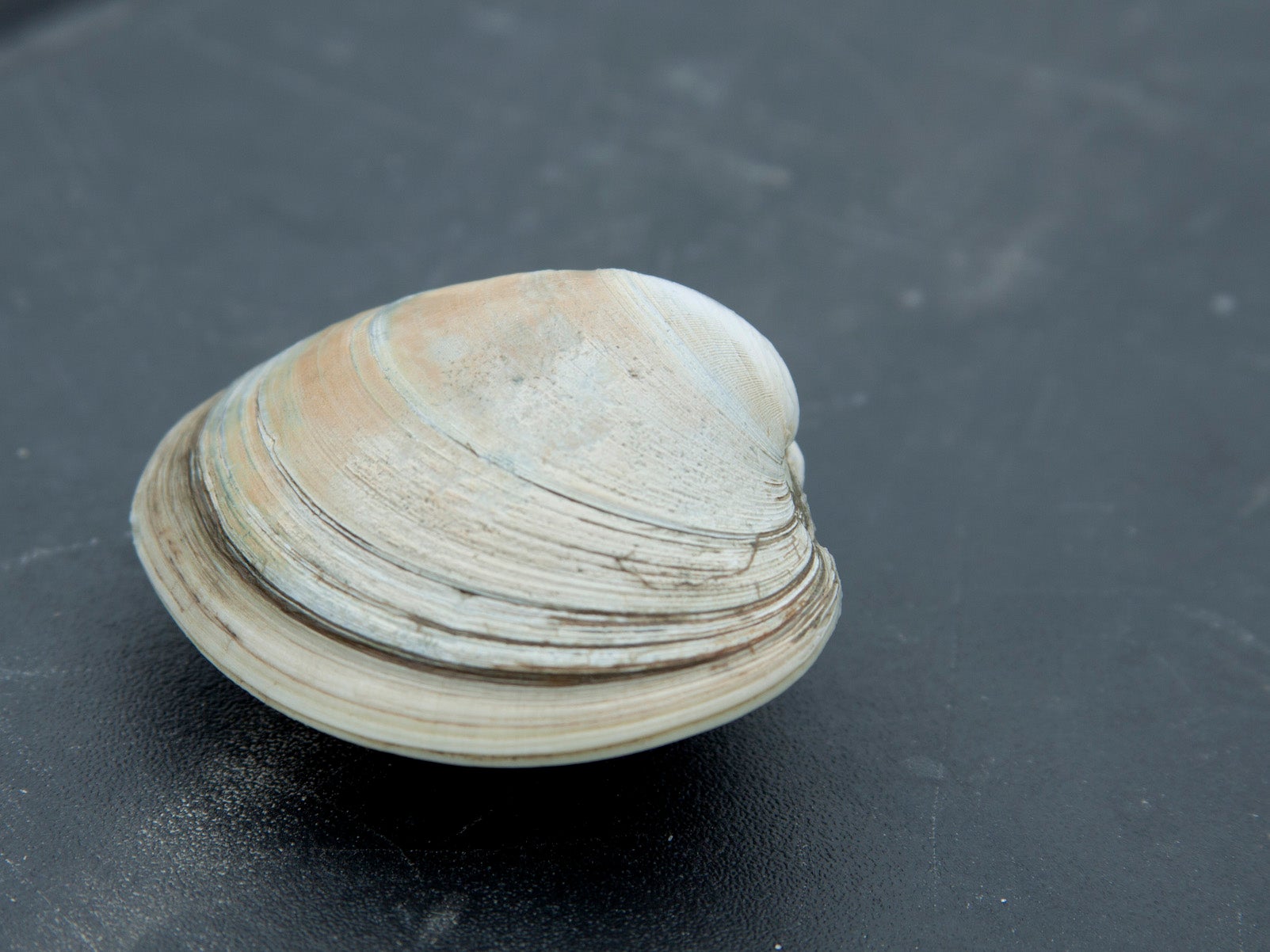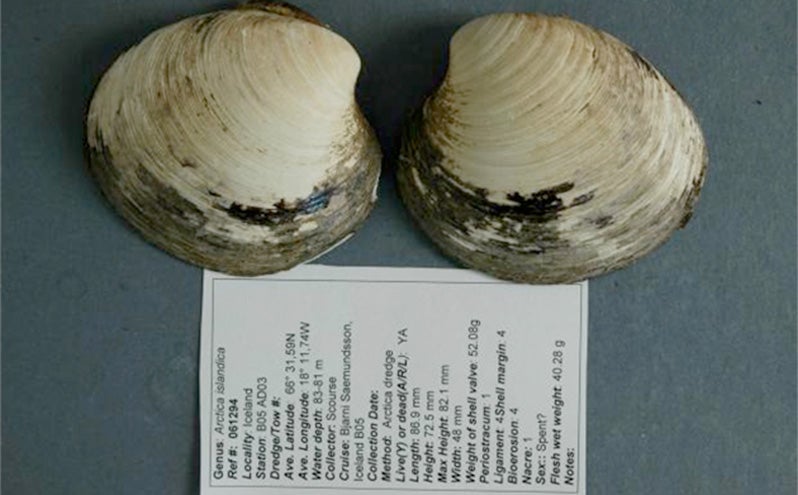The Independent's journalism is supported by our readers. When you purchase through links on our site, we may earn commission.
500-year-old clam reveals 'hugely worrying' evidence of climate change and its effects
Quahog clam shells allow scientists to measure chemical make-up of the oceans more precisely than ever before

A worrying effect of climate change has been discovered by scientists studying the world’s longest-living animal, the quahog clam.
Researchers examined growth rings on the shell of the edible mollusc, which can live for more than 500 years, to uncover details of a dramatic shift in the interaction between the North Atlantic Ocean and the atmosphere.
Before the industrial period began some 200 years ago, atmospheric fluctuations were caused by natural changes in the ocean, driven by volcanic eruptions and the sun’s radiation.

But since humans started emitting large amounts of greenhouse gases through industrialisation, a switch has taken place and changes in the ocean are now led by the atmosphere, according to the international team of biologists.
Professor Ian Hall, the study’s co-author, told The Independent the clams had allowed them to create a picture of the history of the planet’s oceans over the last millennium.
“The clam is like a tree ring. It grows and lays down annual growth bands,” he said.
“Growth rings in trees get stitched together to give you absolutely dated chronologies and therefore you can use those to reconstruct temperature [on land]. In the oceans, we’ve not had that ability before.”
Professor Hall, head of Cardiff University’s School of Earth and Ocean Sciences, said the atmosphere and the oceans were “intimately coupled” because they both transport heat across the planet.
In the pre-industrial period, the world’s oceans “played an active role in driving atmospheric climate variability,” he said. “It seems there’s been a shift in that relationship.”
The clams’ shells showed that from 1800, changes to the world’s oceans no longer preceded changes to the atmosphere, but instead took place at the same time or lagged behind them.
“The atmosphere is warming much quicker and driving the ocean variability,” said Professor Hall.
This was a cause for concern “in the sense that man-made climate variability is hugely worrying,” he said, adding that the research could make it easier to accurately simulate and predict climate change in the future.
In the study, led by Cardiff University and Bangor University and published in Nature, biologists collected live and fossilised quahog clams from an area in the north of Iceland.
They studied the chemistry in the growth rings of 21 clam shells spanning a 1000 year interval to measure the chemical make-up of the oceans in a more precise timeframe than ever before.

A separate study into climate change published last week found global warming to be beyond the “point of no return” and claimed its full impact has been underestimated because scientists haven’t taken into account a major source of carbon in the environment.
The report, also published in Nature, said temperatures will increase by 1C by 2050 – findings which are already being adopted by the United Nations.
In 2013, a quahog clam known as Ming, believed to be the world's oldest animal at 507 years old, was killed by scientists trying to tell how old it was.
Join our commenting forum
Join thought-provoking conversations, follow other Independent readers and see their replies
Comments
Bookmark popover
Removed from bookmarks